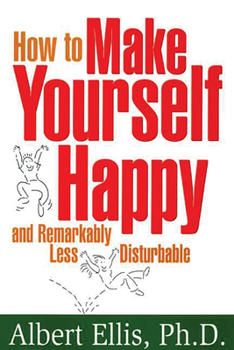How to Make Yourself Happy and Remarkably Less Disturbable
Select Format
Select Condition 
Book Overview
Would you like to: Change your disturbing thoughts into healthy ones? Make yourself less disturbable in the face of adversity? Overcome anxiety, depression, rage, self-hate, or self-pity? How to Make... This description may be from another edition of this product.
Format:Paperback
Language:English
ISBN:1886230188
ISBN13:9781886230187
Release Date:May 1999
Publisher:Impact
Length:224 Pages
Weight:0.73 lbs.
Dimensions:0.5" x 6.0" x 9.0"













